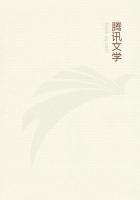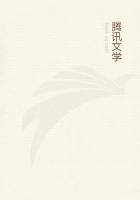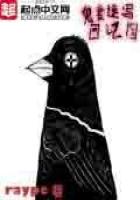With the primitive barbarian, before the simple content of the notion has been obscured by its own ramifications and by a secondary growth of cognate ideas, "honourable" seems to connote nothing else that assertion of superior force. "Honourable" is "formidable"; "worthy" is "prepotent". A honorific act is in the last analysis little if anything else than a recognised successful act of aggression; and where aggression means conflict with men and beasts, the activity which comes to be especially and primarily honourable is the assertion of the strong hand. The naive, archaic habit of construing all manifestations of force in terms of personality or "will power" greatly fortifies this conventional exaltation of the strong hand. Honorific epithets, in vogue among barbarian tribes as well as among peoples of a more advance culture, commonly bear the stamp of this unsophisticated sense of honour. Epithets and titles used in addressing chieftains, and in the propitiation of kings and gods, very commonly impute a propensity for overbearing violence and an irresistible devastating force to the person who is to be propitiated. This holds true to an extent also in the more civilised communities of the present day. The predilection shown in heraldic devices for the more rapacious beasts and birds of prey goes to enforce the same view.
Under this common-sense barbarian appreciation of worth or honour, the taking of life -- the killing of formidable competitors, whether brute or human -- is honourable in the highest degree. And this high office of slaughter, as an expression of the slayer's prepotence, casts a glamour of worth over every act of slaughter and over all the tools and accessories of the act. Arms are honourable, and the use of them, even in seeking the life of the meanest creatures of the fields, becomes a honorific employment. At the same time, employment in industry becomes correspondingly odious, and, in the common-sense apprehension, the handling of the tools and implements of industry falls beneath the dignity of able-bodied men. Labour becomes irksome.
It is here assumed that in the sequence of cultural evolution primitive groups of men have passed from an initial peaceable stage to a subsequent stage at which fighting is the avowed and characteristic employment of the group. But it is not implied that there has been an abrupt transition from unbroken peace and good-will to a later or higher phase of life in which the fact of combat occurs for the first time. Neither is it implied that all peaceful industry disappears on the transition to the predatory phase of culture. Some fighting, it is safe to say, would be met with at any early stage of social development.
Fights would occur with more or less frequency through sexual competition. The known habits of primitive groups, as well as the habits of the anthropoid apes, argue to that effect, and the evidence from the well-known promptings of human nature enforces the same view.
It may therefore be objected that there can have been no such initial stage of peaceable life as is here assumed. There is no point in cultural evolution prior to which fighting does not occur. But the point in question is not as to the occurrence of combat, occasional or sporadic, or even more or less frequent and habitual; it is a question as to the occurrence of an habitual; it is a question as to the occurrence of an habitual bellicose from of mind -- a prevalent habit of judging facts and events from the point of view of the fight. The predatory phase of culture is attained only when the predatory attitude has become the habitual and accredited spiritual attitude for the members of the group; when the fight has become the dominant note in the current theory of life; when the common-sense appreciation of men and things has come to be an appreciation with a view to combat.
The substantial difference between the peaceable and the predatory phase of culture, therefore, is a spiritual difference, not a mechanical one. The change in spiritual attitude is the outgrowth of a change in the material facts of the life of the group, and it comes on gradually as the material circumstances favourable to a predatory attitude supervene. The inferior limit of the predatory culture is an industrial limit. Predation can not become the habitual, conventional resource of any group or any class until industrial methods have been developed to such a degree of efficiency as to leave a margin worth fighting for, above the subsistence of those engaged in getting a living. The transition from peace to predation therefore depends on the growth of technical knowledge and the use of tools. A predatory culture is similarly impracticable in early times, until weapons have been developed to such a point as to make man a formidable animal. The early development of tools and of weapons is of course the same fact seen from two different points of view.
The life of a given group would be characterised as peaceable so long as habitual recourse to combat has not brought the fight into the foreground in men's every day thoughts, as a dominant feature of the life of man. A group may evidently attain such a predatory attitude with a greater or less degree of completeness, so that its scheme of life and canons of conduct may be controlled to a greater or less extent by the predatory animus. The predatory phase of culture is therefore conceived to come on gradually, through a cumulative growth of predatory aptitudes habits, and traditions this growth being due to a change in the circumstances of the group's life, of such a kind as to develop and conserve those traits of human nature and those traditions and norms of conduct that make for a predatory rather than a peaceable life.
The evidence for the hypothesis that there has been such a peaceable stage of primitive culture is in great part drawn from psychology rather than from ethnology, and cannot be detailed here. It will be recited in part in a later chapter, in discussing the survival of archaic traits of human nature under the modern culture.

